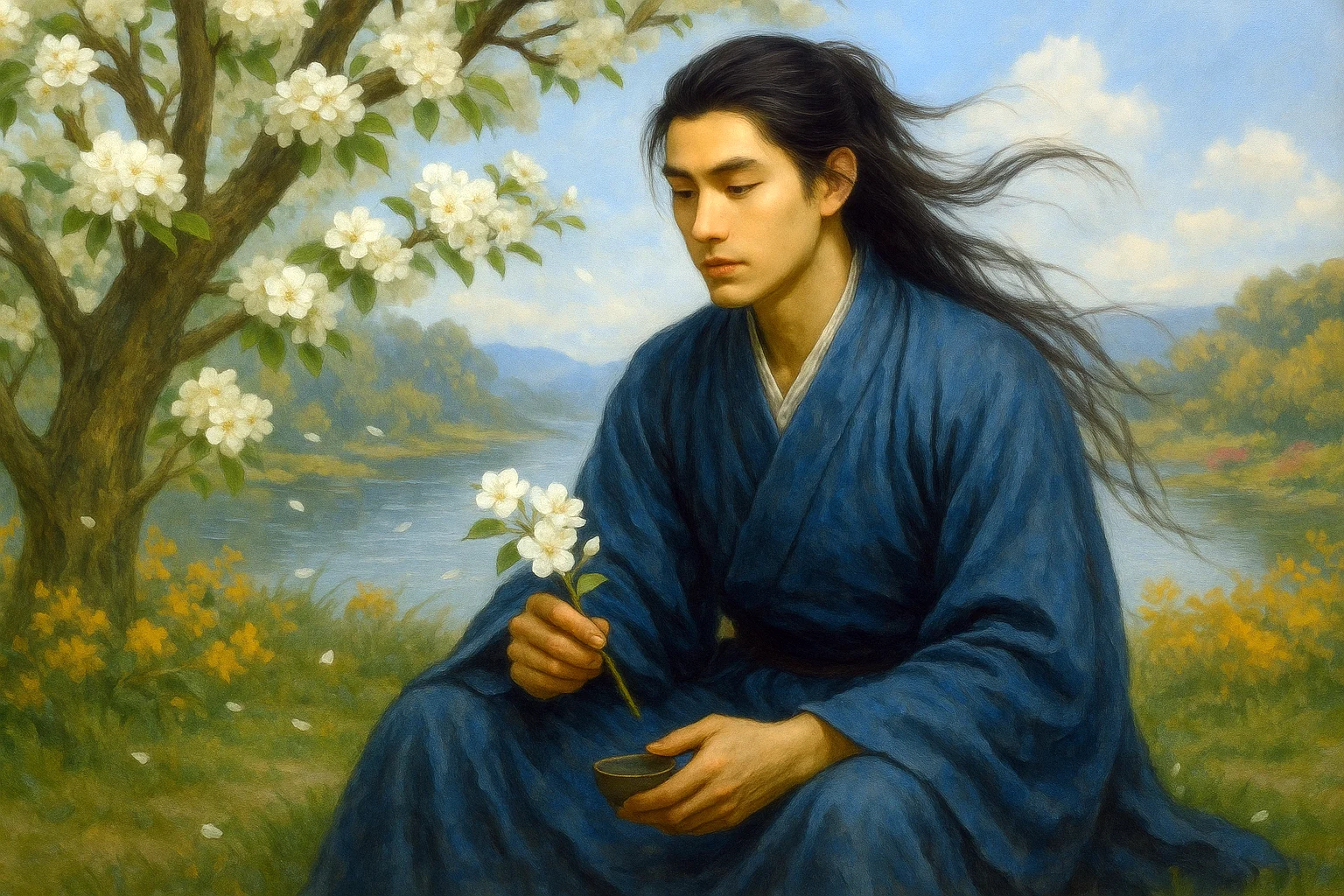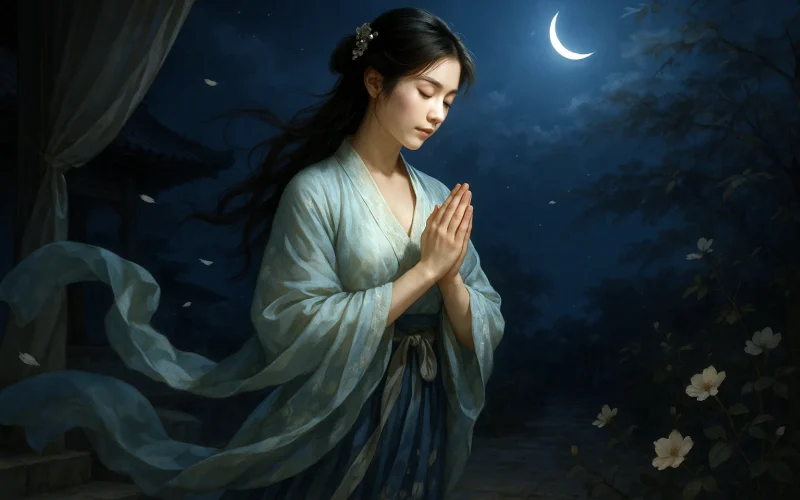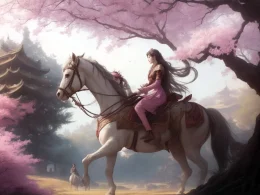Parting the screen, I see the newborn moon;
At once I descend the stairs to pray.
My murmured words dissolve—too faint, too soon—
The north wind flutters my sash away.
Original Poem
「拜新月」
李端
开帘见新月,便即下阶拜。
细语人不闻,北风吹裙带。
Interpretation
This poem is rooted in the Tang Dynasty's prevalent moon-worship customs, where women—whether noble or common—would reverently greet the new moon, offering whispered prayers and secret yearnings. Li Duan transcends mere documentation of this ritual, capturing instead a maiden's tender vulnerability as she bares her heart to the crescent moon—a portrait of delicate emotions woven with innocence and restraint.
First Line: "开帘见新月,便即下阶拜。"
Kāi lián jiàn xīnyuè, biàn jí xià jiē bài.
She lifts the curtain to the newborn moon, then descends the steps at once to kneel.
The opening line thrums with impulsive devotion. The immediacy of "at once" (便即) reveals her unguarded heart—no hesitation mars this sacred rendezvous. In that swift motion lingers a lifetime of suppressed longing, her instinctive reverence painting an entire biography in a single gesture.
Second Line: "细语人不闻,北风吹裙带。"
Xìyǔ rén bù wén, běifēng chuī qúndài.
Her murmurs escape all ears; the north wind toys with her silken sash.
Here, silence speaks volumes. The "inaudible murmurs" (细语人不闻) cradle confessions too intimate for daylight, while the caressing wind animates the scene—its playful tug at her sash mirrors the stirrings of her heart. This interplay of soundless words and fluttering fabric conjures an almost sacred solitude, where emotions ripple like moonlight on water.
Holistic Appreciation
Though merely four lines long, this poem resonates with profound emotion and lofty artistic conception, a masterpiece of concise yet enduring expression. Through exquisite plain-drawing technique, the poet depicts a woman's gesture of worshiping the new moon—her movements, demeanor, and surroundings—revealing intense emotional undercurrents with seemingly effortless strokes. Her act is not ritualistic; rather, upon glimpsing the moon, her feelings surge forth like a spring, compelling her to bow in reverence and whisper prayers. The fluttering of her sash in the north wind animates the scene, adding visual depth and sensory authenticity.
The poet leaves the woman's identity unstated, yet the poetic atmosphere subtly unveils her inner world. Within literary tradition, worshiping the new moon often signifies a maiden's longing for love or a vessel for sorrow. Li Duan refrains from explicit explanation, instead embedding emotion in delicate details, allowing readers to glimpse an intimate soliloquy—both private and deeply sincere. Words like "whisper," "north wind," and "sash" are richly evocative and symbolic, infusing the poem with restrained yet far-reaching lyricism.
Artistic Merits
The poem's brilliance lies in its vivid plain-drawing—using minimal brushstrokes to sketch a lifelike figure and an emotionally charged scene. Unadorned and free of ornate phrasing, it nonetheless captures complex psychology through natural, fluid language. Terms like "promptly" and "whisper" render the woman's emotional impulse strikingly alive. By portraying her spontaneous actions and interaction with the environment, the poet lets feeling emerge organically from the scenery, leaving meaning beyond words and resonance beyond the page.
Insights
Through an unnamed woman's fleeting moonlit moment, Li Duan refracts the most tender and moving facets of human emotion, reminding us of the dignity and devotion inherent in hidden feelings. The image of "worshiping upon seeing the moon" and "whispering unheard" reveals a truth: where the heart dwells, poetry arises; where emotion runs deep, grace follows. This is poetry's most stirring power—to speak the unspeakable, articulating the ineffable yearnings of the human soul.
About the Poet

Li Duan (李端, c. 743–785), a native of Zhaoxian in Hebei Province, was among the "Ten Literary Talents of the Dali Era" during the Mid-Tang period. He excelled particularly in five-character regulated verse, crafting poetry of refined elegance and subtle nuance. His works frequently explored themes of reclusive living and the melancholy of separation, with over 250 poems preserved in the Complete Tang Poetry anthology.












